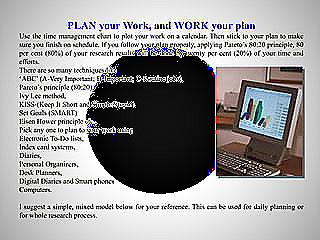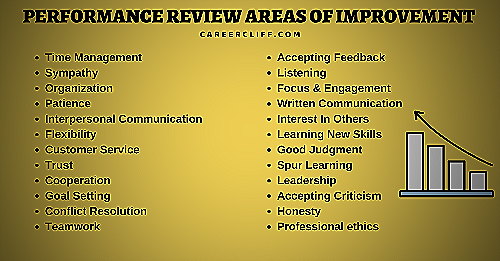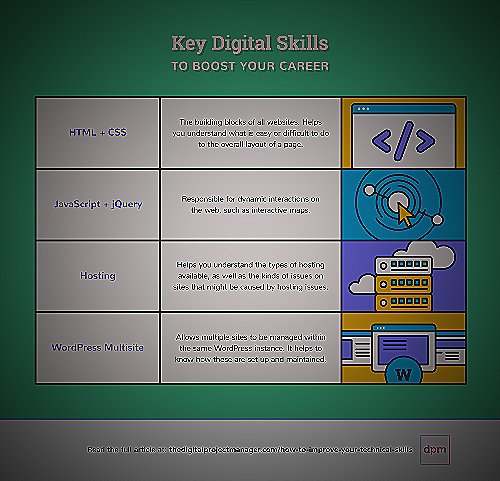Boost Performance: 20 Areas of Improvement at Work Examples
Do you want to boost your performance at work? Check out these 20 areas of improvement at work examples.
Whether it’s for a performance review or personal development, mastering these skills can help you excel in your job.
Effective use of time
Good time management skills can improve productivity, help meet deadlines, and allow people to multitask effectively. Ways to improve time management skills include prioritizing tasks, setting specific goals, and avoiding distractions.
Public Speaking
Effective public speaking can enhance communication skills, boost confidence, and convey ideas in a persuasive manner. Improving public speaking skills can be done through practice, preparation, and joining public speaking groups.
Written Communication
Clear and concise written communication skills are essential for business success. To improve, individuals can focus on grammar and spelling, organize their thoughts into a logical structure, and proofread work before submitting it.
Interpersonal Relations
Building strong interpersonal relationships with coworkers, clients, and customers is a critical skill in the workplace.
Check out this YouTube video to learn helpful examples of areas for improvement at work and how to turn your weaknesses into strengths:
Management of time.
Effective time management is essential for employees to increase productivity and attain work-life balance. Employees can improve their time management skills by following simple steps.
- Start your tasks early: Begin with the most important tasks first thing in the morning and refrain from procrastination.
- Set limits: Prioritize tasks and know when to say no. This helps in avoiding overloading work.
- Take breaks: Take a 10-15 minute break every two hours to replenish your mental energy and avoid burnout.
- Avoid multitasking: Focusing on one task at a time saves time and minimizes errors.
- Avoid Distractions: Turn off or ignore any notifications that aren’t crucial for your work. Set aside specific times to check your email or messages.
- Learn to delegate: Trusting and delegating tasks to teammates who are skilled in particular fields can give an employee more time to work on other projects.

Interpersonal Relations
Interpersonal relations are an essential part of any job. It involves communicating, interacting and working with individuals and groups.
Effective relationships with colleagues, clients and customers can improve productivity and overall work experience. Here are some areas of improvement at work examples that can help improve your interpersonal relations:
- Active Listening: One of the keys to effective communication is active listening. It involves paying attention to the person speaking, asking questions for clarification and paraphrasing. This shows the speaker that you are interested and engaged in the conversation.
- Empathy: Empathy means being able to understand and feel the emotions of others. It helps to build trust and stronger relationships with colleagues, clients and customers.
- Positive Attitude: Maintaining a positive attitude can have a significant impact in the workplace. It can improve team morale and fosters a collaborative and supportive environment.
- Conflict Resolution: Conflict is a natural part of working with others, but knowing how to handle it effectively is important. Being able to resolve conflicts diplomatically can maintain positive relationships and avoid negative outcomes.
- Clear Communication: Effective communication involves being clear and concise in your message. It also means adjusting your communication style to fit the audience and situation.
Improving your interpersonal relations can have a significant impact on your work experience and overall success in your career. Consider these areas of improvement to enhance your communication skills and develop stronger relationships with your colleagues, clients and customers.

Solving problems.
To improve problem-solving skills, employees should focus on developing critical thinking skills. This involves being able to analyze a situation, identify potential solutions, and implement the best course of action.
Employees can work on their problem-solving abilities by regularly practicing hypothetical scenarios, discussing ideas with colleagues, and seeking feedback from supervisors. It is also important for employees to be creative and think outside the box when tackling workplace challenges.
Self-control
Self-management is a crucial skill that can help individuals take charge of their own work, stay organized, and motivated. One of the key areas of improvement that employees can focus on is time management.
By improving one’s time management skills, an individual can be more productive at work, better multitask, and meet deadlines.
To improve time management skills, individuals can try starting their tasks early, setting limits for what they say yes to, giving themselves breaks, and determining their priorities. Additionally, self-motivation, stress management, adaptability, and decision-making are some other examples of self-management skills that can be improved.

Skills in technology.
Improving technical skills is essential in today’s fast-paced work environment. Technical skills refer to the abilities, knowledge, or expertise required to perform specific job-related tasks, particularly those related to technology, engineering, science, finance, and IT.
To improve your technical skills, you can take courses, attend seminars or workshops, and seek guidance from experts in the field. Some examples of technical skills you might want to develop include programming languages, data analysis, technical writing, design, and cybersecurity.

Examples of Work Improvement Areas.
Improving oneself is an essential aspect of career development and job satisfaction. Self-improvement increases motivation and productivity while also keeping employees engaged and happy.
Here are some areas of improvement at work examples:
Time Management
Time management is a critical skill that employees need to develop. Better multitasking, meeting deadlines, and managing time contribute to an increase in productivity.
Some ways to improve time management skills include:
- Starting tasks early
- Setting limits for what you’ll say yes to
- Giving yourself breaks
- Determining priorities
- Avoiding multitasking
- Avoiding distractions
Interpersonal Skills
Interpersonal skills are essential for effective communication, interaction and collaboration, both as an individual or in groups. Communication is a crucial component of various job fields, including customer service and IT.
Here are some strategies to enhance interpersonal skills:
- Practicing active listening
- Developing empathy towards colleagues and clients
- Being assertive but respectful
- Understanding diverse perspectives
- Encouraging open communication and feedback
Problem-Solving
Problem-solving involves critical thinking, decision-making, creativity, and information processing. Effective problem-solving skills help reduce stress, improve decision making, and increase job satisfaction.
Some steps to improve problem-solving skills include:
- Observing the situation and determining the contributing factors of the issue
- Identifying the root cause and the ability to prioritize possible solutions and choose the most effective one
- Staying open-minded and considering multiple perspectives
- Collaborating with others to leverage knowledge and expertise.
Self-Management
Self-management is the ability to regulate oneself in various aspects, including emotions, time, and stress. Improving this skill involves holding oneself accountable, focusing on work goals, managing priorities, and being organized.
Here are some ways to develop self-management skills:
- Setting personal goals to ensure that you stay focused on your long-term objective
- Developing self-motivation by finding inspiration to continue working diligently
- Managing stress by taking breaks, practicing relaxation techniques, and balancing work with leisure activities
- Being adaptable to change by learning new skills, accepting feedback, and adjusting to new working environments
Technical Skills
Technical skills are defined as the abilities, knowledge, or expertise required to perform particular job-related tasks. Improving technical skills leads to increased competence, adaptability, and confidence in handling challenging work-related tasks.
Here are some strategies to improve technical skills:
- Enrolling in online courses, in-person classes, or workshops to expand technical knowledge
- Seeking guidance from mentors, colleagues, or other professionals
- Practicing regularly to master specific techniques or tools
- Keeping up-to-date with the latest trends and advancements in the industry
Areas of Improvement at Work Examples
Improving in these 20 areas of improvement at work examples can help you become a more effective employee and advance in your career:
Time Management
Learn how to prioritize tasks, avoid multitasking, and manage your time better by setting realistic deadlines. Give yourself breaks to recharge and always start tasks early to avoid any unnecessary stress.
Interpersonal Skills
Effective communication and collaboration in the workplace are essential. Develop your ability to communicate well both verbally and in writing, work with others, resolve conflicts, and empathize with others.
Problem-Solving
Develop skills in critical thinking, decision-making, creativity, and information processing. Identify problems, gather information, evaluate options, and take action to resolve issues effectively.
Self-Management
Develop self-discipline, stay organized, and focused on your goals. Be respectful to others, know your strengths and weaknesses, and take responsibility for your actions.
References
- The Balance Careers – Top Areas for Improvement for Employees
- Business News Daily – 10 Tips for Increasing Your Workplace Productivity
- Inc. Magazine – 5 Tips for Improving Employee Performance

